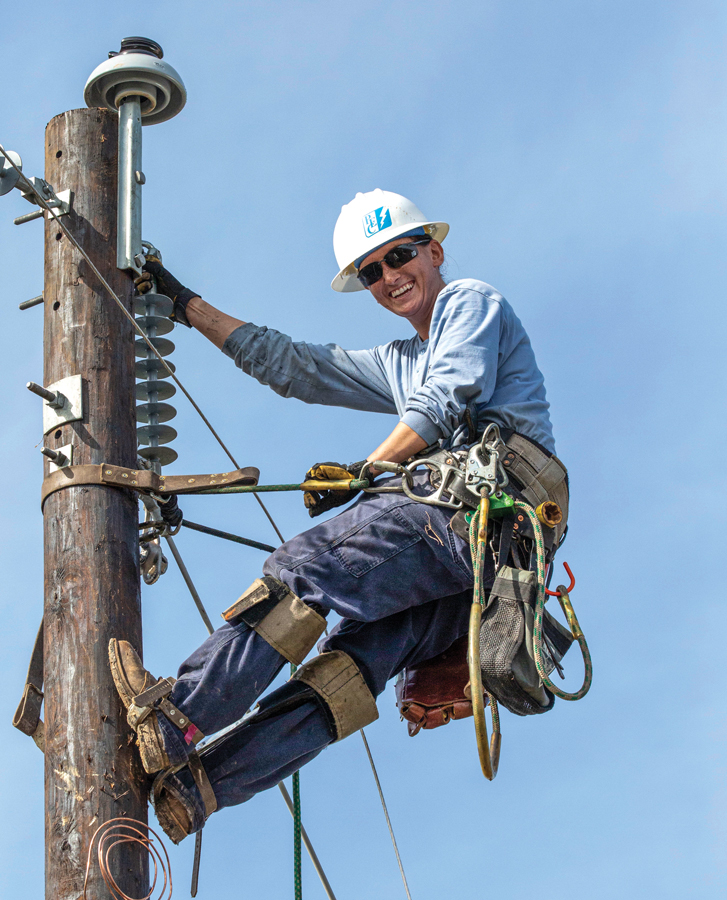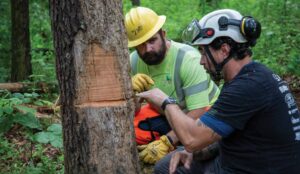In August 2018, Drayton Davis strapped on his climbing equipment and gaffs (sharp steel spikes fastened to boots to help with climbing), put on his hard hat, gloves and other safety gear, and ascended a utility pole for the first time at lineman training school at Lincoln Land Community College (LLCC). A year later, the 19-year-old started his first full-time job as an apprentice lineman at Rural Electric Convenience Cooperative (RECC), thanks to the co-op’s internship program.
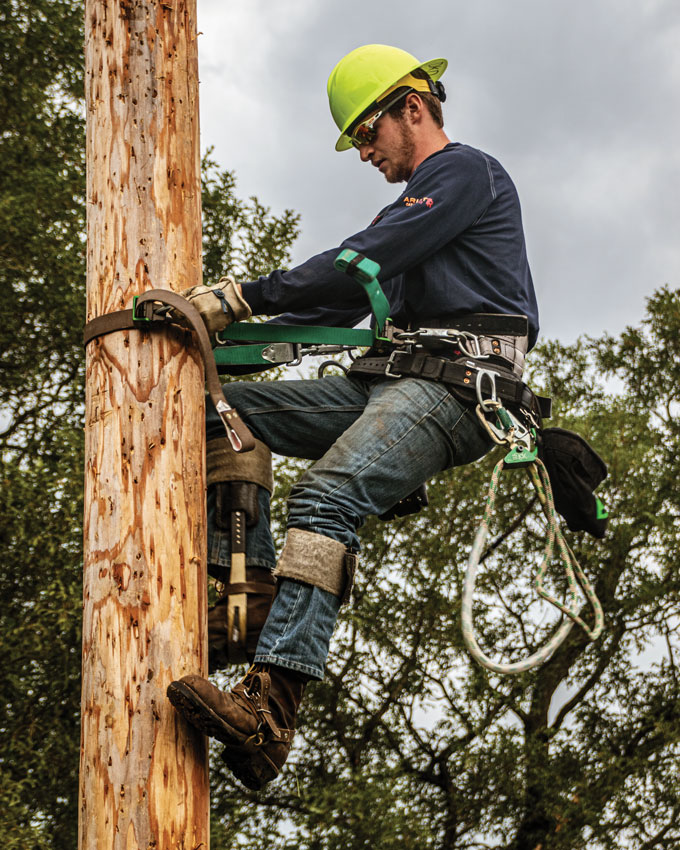
Originally, Davis wanted to become a police officer, but a few years ago a lineman moved in across the street from his home in Athens. “We talked about [line work], and it sounded like fun,” Davis says. “You spend time outside every day, and every day is something different. That’s what I wanted.”
In January 2019, after the fall semester of lineman school, Davis was hired at RECC as an intern. The internship gives future lineworkers an opportunity to see what a real lineman does. It is part-time, applicants must have attended or be currently enrolled in lineman school, and the internship ends after 1,000 hours of work. RECC only has spots for two interns, both currently filled. Most interns come from the electric distribution lineman program at LLCC, facilitated by the Association of Illinois Electric Cooperatives.
“We don’t guarantee that this internship will lead to full-time employment,” explains David Stuva, president/CEO of RECC, headquartered in Auburn. “But it definitely gets their foot in the door and lets them see what a lineman actually does. I think our track record is pretty good … most of the people who do this internship get hired at a utility if they choose to pursue it.”
In fact, more than half of RECC’s line crew formerly interned at the co-op. Most of the others easily found jobs when their internships ended. Some found line work at Ameren, an investor-owned utility; some at municipal utilities; and others for electrical contractors. A good number found jobs in the Illinois electric cooperative family, which includes Illinois Electric Cooperative, Winchester; Menard Electric Cooperative, Petersburg; and Western Illinois Electrical Coop., Carthage.
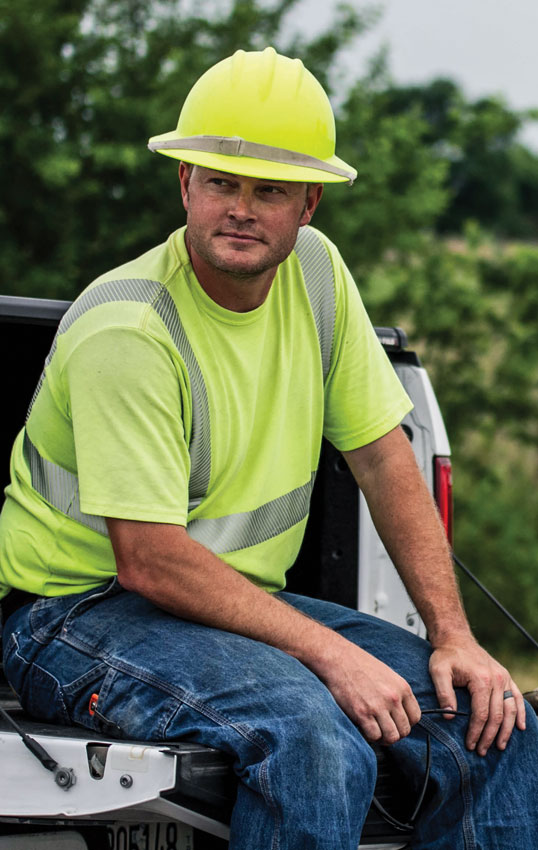
The program in its current format started in 2006 with Travis Boylen as the first intern. Now a line foreman, Boylen has worked for RECC for 13 years. He followed in his father’s footsteps, who worked as a lineman for more than 40 years at Adams Electric Cooperative, Camp Point.
“An intern starting out is going to drag brush… That’s all I did when I started,” Boylen explains. “[This internship] will test your work ethic and see how you mesh with the guys. You’re with these guys more than you’re with your family. So, you’ve got to be able to get along and you’ve got to be able to take the heat, especially from us.”
While interns will spend most of their time with the tree crew working on line clearance, they will occasionally get put with the line crew to get a taste of it. “About 80 percent of the time they’re on the tree crew,” says Tim Hemberger, manager of operations and maintenance at RECC. “They’re dragging brush to the chipper and chipping brush, but there are times I will take one of the interns and let them work with the line crews.”
After line school ends, there is no guarantee that a job is waiting for students. However, the internship helps these future lineworkers gain valuable experience. “These kids have an opportunity to go right into an internship and get paid on-the-job training,” Stuva explains. “You can do anything you want in a classroom, but you learn a lot more on the job hanging out with real linemen and actually seeing what they do.”
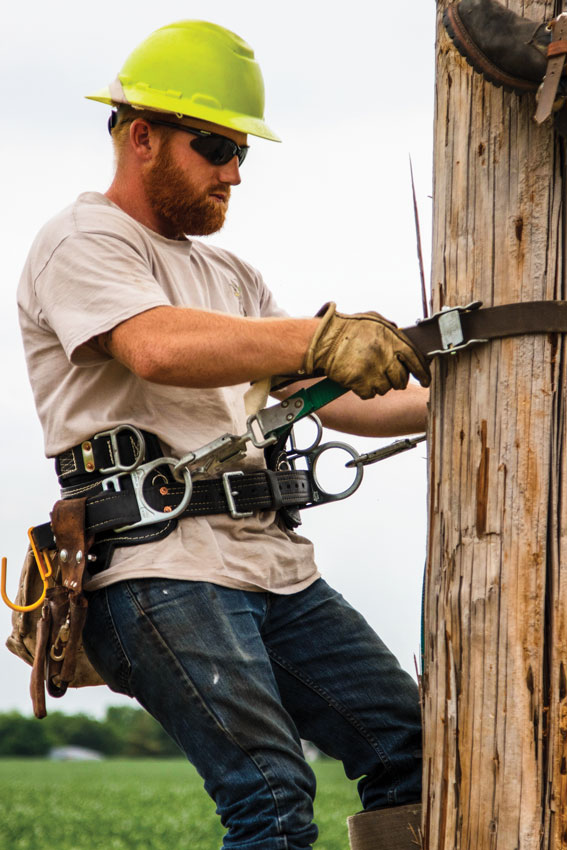
“The job isn’t just dragging brush,” Boylen adds. “You’re still learning the ins and outs of the job. You learn things you can and can’t do around power lines. You learn the system. You’ve got member contact. You’re learning to talk to people.”
Now that Boylen works with the interns, after having been one, he says his biggest goal is to pass on everything he has learned. “Every system is different, and each co-op will do things a little different,” he says. “But being able to teach them the way we do it, that’s a good thing… I like to be able to take what the guys before me have taught me and pass it on.”
Reflecting on his time as an intern, Boylen says the main thing he learned was that being a lineman was something he wanted to do for the rest of his career. “I knew I could be happy doing this… that I could be happy retiring here,” he says. “Even after 13 years, this job has never gotten old.”
Davis feels the same way about his internship. He says coming to RECC as an intern was hard at first because the other guys tested him every day and dragging brush is tiring work. Then there were the days he got to go out with the line crew.
“Watching [the linemen] go up in trucks and work, I knew it was what I wanted to do,” Davis says. “I wanted to be up there, but I don’t know everything that’s going on, so obviously I can’t go up there and do it. There’s so much more to learn.”
Hemberger has been at the co-op for 33 years, and most of that time was spent as a journeyman lineman. “It’s a big responsibility, but a lineman job is very rewarding,” he says. “It sounds crazy, but it is very rewarding to be out on a cold winter night and it is zero, it’s dark and the wind is blowing. You put a line back up and you throw the breaker. Then you see all the lights come on. It’s kind of the lineman’s high.”
While that “high” is something for the interns to look forward to someday, Boylen and Davis have a few tips for future interns: do what you are told, show initiative, ask questions and have a thick skin.
“You’re going to get tested,” Boylen says. “You’re going to get made fun of. We’re going to find out what you’re made of. We have a lot of inside jokes. The work we do is serious, but the work atmosphere has to be light.”
For future interns, don’t expect to be doing the actual work of a lineman.
“When you come out of line school, and if you have the opportunity to do an internship, understand that you’re not going to just go right back into line school,” Boylen explains. “You’re not going to be climbing poles and you’re not going to be in buckets. You’re going to be on the ground learning and doing the manual labor. The rest comes with time. It’s an internship, but in a lot of cases it’s a 6-month job interview.”
“Our interns make a good wage, but they don’t receive benefits,” Hemberger says. However, the internship does benefit them in other ways. “There are very few guys that you offer an internship to and they turn it down, because it is a good deal.”
“A big reason we hire interns is rather than hiring someone off the street and putting them on a 6-month probation period, we bring an intern in here and see how he fits in with those 10 linemen,” Hemberger explains. When the co-op needs to hire someone new, the linemen are the go-to people to check work ethic and how the interns get along with the group.
“Even if we’re not hiring right then, in the future we know who to talk to if we need somebody. It works pretty well,” Stuva adds. “Some of these guys got hired long after they did the internship. The people here are already familiar with their work ethic.”
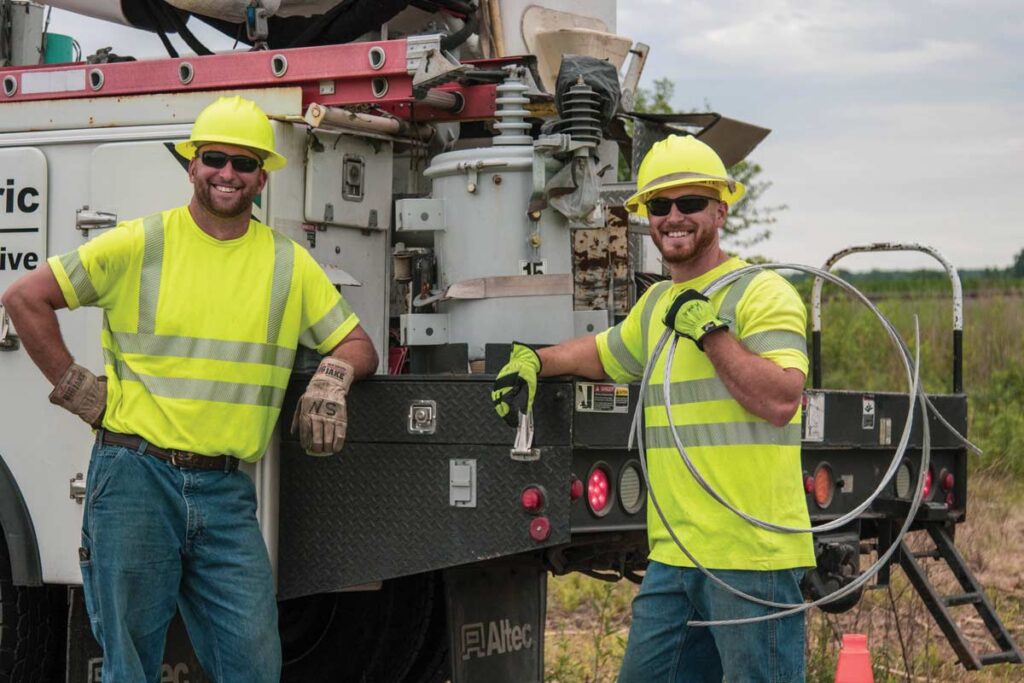
If RECC isn’t hiring, the internship also helps improve job prospects. Hemberger is more than willing to be a positive job reference if the intern was a good worker. “It really helps them get their foot in the door,” Stuva explains.
Not only did RECC’s internship program help get Boylen’s and Davis’ feet in the door, but it also helped four other RECC linemen. Previous interns who have since been hired full time include Shane Norris, Sean Koen, Andrew Boston and Matt Evans.
“I would recommend more people to do an internship, just to get a taste of what it’s like,” Davis says. “If you’re just sitting around trying to get a full-time job, try going somewhere to see if they have internships.”
For Davis, it will be several years before he becomes a journeyman lineman. As a first-year apprentice at RECC, he won’t be allowed in a bucket truck to do hot work, and he will work under the direct supervision of a journeyman lineman. While each co-op has a different version of an apprentice lineman program, it will take Davis at least four years until he can strap on his climbing and safety gear and ascend a utility pole for the first time as a journeyman lineman.


